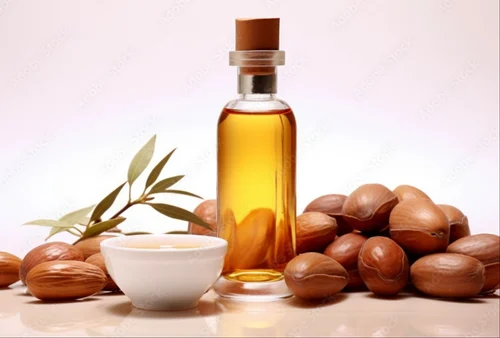Argan oil is a precious commodity derived from the nuts of the argan tree Argania spinosa, which is native to Morocco. The wholesale shop’s sourcing of argan oil likely involves a detailed and multi-step process, ensuring that they procure the highest quality oil. To understand how this oil is sourced, it is essential to examine both the geographical origin and the process of production that brings this oil from Morocco’s vast arid landscapes to global markets. The argan tree thrives in the semi-desert regions of southwestern Morocco, where the climate is dry and the soil is rich in nutrients. This region, known as the Arganeraie Biosphere Reserve, has become the heart of argan oil production. The trees grow in a protected area that spans over 2.5 million hectares. This region has been historically and culturally tied to the Berber people, who have long relied on argan oil for cooking, skin care, and medicinal purposes.
In recent decades, the commercial value of argan oil has surged, look at where the wholesale shop sourced their product particularly due to its highly regarded benefits in cosmetics and wellness industries, prompting global demand. Wholesale shops typically source their argan oil from established cooperatives in Morocco. These cooperatives are crucial in providing a sustainable and fair-trade model for production. By working with cooperatives, wholesale shops ensure that the women in rural areas who are the main workers involved in extracting the oil receive fair compensation and support for their community. The cooperatives often practice traditional methods of extraction, which involve removing the nuts from the fruit, cracking them open to obtain the kernels, and then grinding these kernels to produce the oil. The process of extracting pure argan oil is labor-intensive. After the nuts are harvested from the trees, they are dried in the sun, and the hard-outer shell is cracked open.
The kernels inside are then collected and either cold-pressed to extract oil for cosmetic and health products, or roasted to produce oil used in food preparation. Cold-pressed argan oil is the most sought after for its higher nutritional value and purer form. Wholesale distributors typically look for suppliers who use organic farming methods, ensuring the oil is free from pesticides and other chemicals, which adds to the oil’s appeal to health-conscious consumers. The sourcing process is not just about finding a reliable supply of argan oil but also ensuring ethical and sustainable practices. Given that the argan tree is native to a specific region of Morocco, the environmental impact of over-harvesting can be significant. Wholesale shops that source their products carefully partner with suppliers who adhere to sustainable harvesting practices, allowing the argan tree population to regenerate. The cooperative model also ensures that the process benefits local communities by creating jobs and providing a steady income for women.
